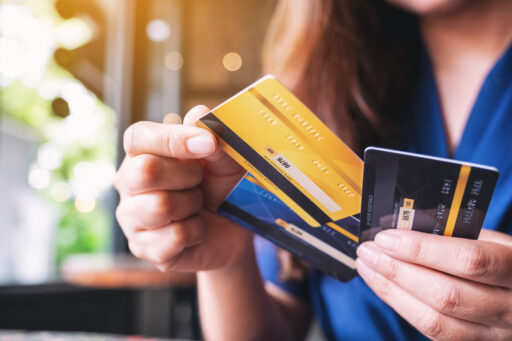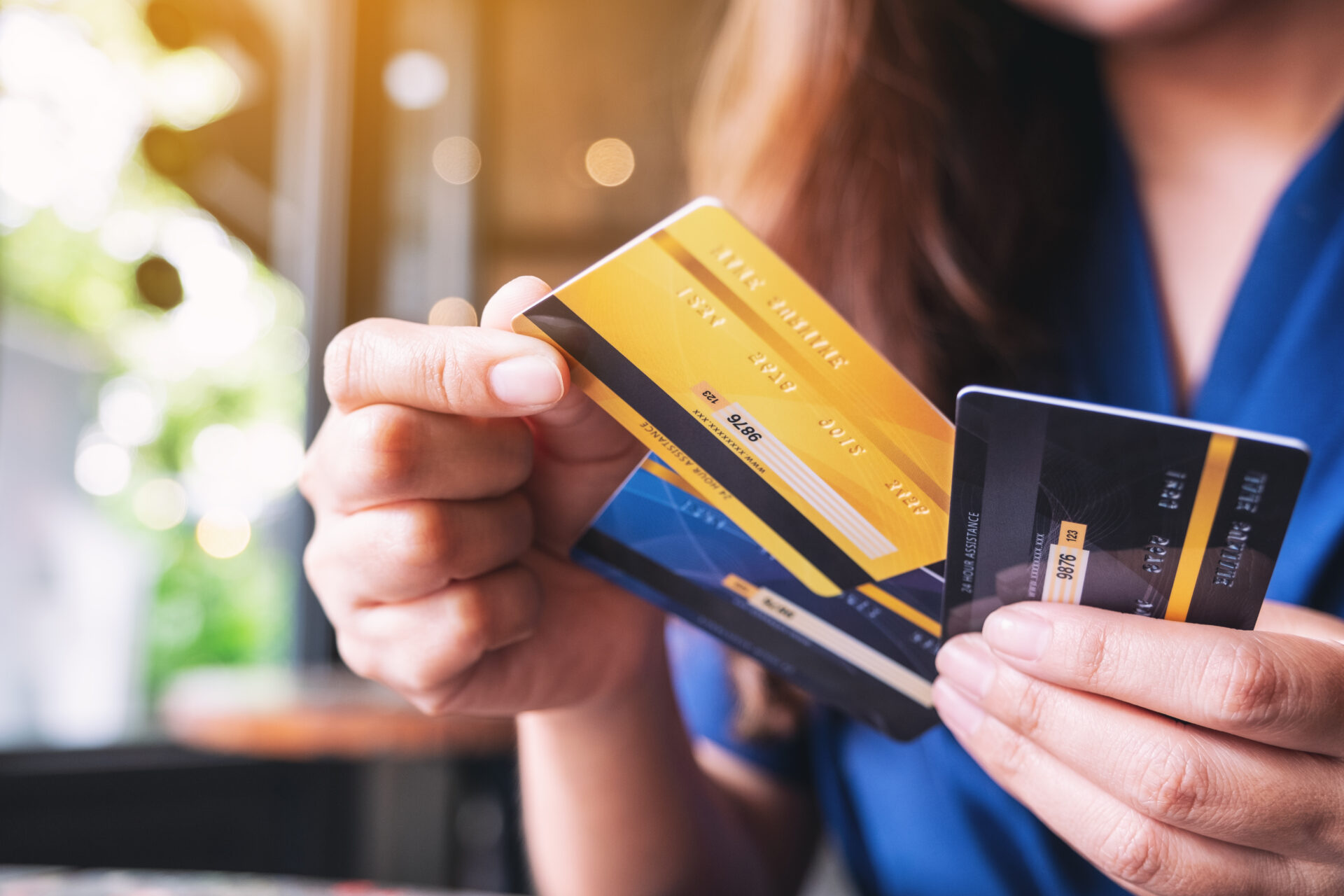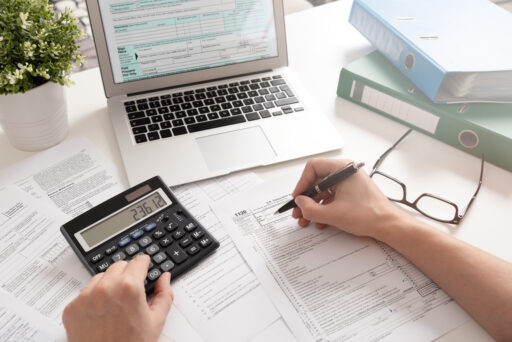If you’ve ever stood at a checkout line wondering, “Should I use my debit card or my credit card for this?” you’re not alone; We’ve all been there. It’s a basic question, but your decision can have a real impact on your overall financial health.
Both debit and credit cards look merely identical, but the difference lies in the benefits they offer and the way they function behind the scenes.
In this guide, we’ll break down the key differences between debit cards and credit cards, explain how each one affects your finances, and help you decide when to use which.
Table of Contents
Key Takeaways
- A debit card pulls money straight from your checking account, while a credit card lets you borrow money up to a limit.
- Credit cards typically offer stronger fraud protection and help you build credit if used responsibly.
- Modern debit cards have improved features, but most still lack the full protections and perks that come with credit cards.
- Always compare fees, rewards, and benefits when deciding which card to use; some credit cards now come with no annual fees, and some debit cards charge overdraft fees.
- If you’re teaching a teen or child about money, kid-friendly debit cards can be a helpful tool; credit cards usually aren’t an option until they’re older.
What Is a Credit Card?
A credit card is a payment tool that lets you borrow money from a bank or credit issuer to make purchases. You’re given a credit limit, essentially a maximum amount you can borrow, and you’re expected to pay back what you spend, either in full or over time.
If you don’t pay the full balance by your due date, you’ll be charged interest, and possibly late fees. But if you pay on time and in full, you can avoid interest altogether while building a positive credit history.
Most credit cards also come with extra perks, like cashback rewards, travel points, purchase protection, and stronger fraud protection compared to debit cards.
Key Features:
- You borrow money to make purchases
- Monthly payments are required
- Interest applies if you don’t pay your full balance
- Helps you build or improve your credit score
- Comes with added protections and potential rewards
>> Read More: 5 Best Credit Cards With No Annual Fee
What Is a Debit Card?
A debit card is linked directly to your checking account. When you swipe your card, the money is instantly deducted from the balance in your account; there’s no borrowing involved.
Because you’re using your own funds, debit cards don’t charge interest and won’t affect your credit score. That makes them a solid option for anyone looking to stay within budget or avoid going into debt.
However, debit cards may not offer the same level of purchase protection or fraud coverage as credit cards. Still, they’re a reliable and convenient way to access your money without carrying cash.
Key Features:
- Spends money from your existing bank balance
- No borrowing, no interest
- No impact on your credit score
- Easier to qualify for (no credit check)
- May have limited fraud protection or overdraft risk
What’s the Real Difference Between a Debit Card and a Credit Card?
Let’s start with the basics:
- A debit card pulls money directly from your checking account. It’s like spending cash; when it’s gone, it’s gone.
- A credit card lets you borrow money from a bank or card issuer, up to a certain limit. You’ll need to pay it back later, and if you carry a balance, you’ll pay interest.
That’s the core difference. But how you use these cards, and when, is where things get interesting.
When to Use a Debit Card
A debit card is usually the safest bet when you want to stick to your budget. You’re only spending what you already have in your account, which helps keep overspending in check.
Use a debit card when:
- You’re buying everyday items like groceries or gas
- You want to avoid debt and interest charges
- You’re managing a tight budget
- You’re trying to avoid the temptation of spending more than you earn
Just be aware, if your checking account doesn’t have enough money and you haven’t opted out of overdraft protection, your bank might still approve the transaction and hit you with a fee (which varies from bank to bank).
When to Use a Credit Card
A credit card can be an extremely smart and useful tool, if you use it wisely. The key benefit is that it gives you flexibility and helps build your credit history.
Use a credit card when:
- You want to earn rewards (cash back, points, travel perks)
- You’re booking a hotel, car rental, or flight (credit cards often offer better protection)
- You’re making a big purchase and want extra fraud coverage or extended warranties
- You’re confident you can pay the full balance each month
Credit cards offer way better protection against fraud. If someone uses your credit card without permission, you’re typically not held responsible. With a debit card, you could be on the hook for more, especially if you don’t report it quickly.
Debit Card Pros and Cons
Credit Card Pros and Cons
Debit Card vs Credit Card: Which One Should You Use?
Here’s a simple way to think about it:
- Use your debit card for day-to-day spending and keeping your budget on track.
- Use your credit card for larger purchases, travel, or when you want to earn rewards, but only if you can pay it off in full each month.
If you’re working on building credit, a credit card can be a powerful tool. Just be mindful: it’s not free money. It’s borrowed money that you’re expected to repay on time.
Final Thoughts: It’s Not Either/Or, it’s Both
In the end, it’s not really about debit card vs credit card; it’s about knowing when to use each one to your advantage. Smart money management means having both in your wallet and knowing which card works best for different situations.
If you’re just starting out, start small. Use your debit card to stay grounded and practice good spending habits. When you’re ready, use a credit card responsibly to build your credit and earn a few perks along the way.
Bottom line: It’s not about picking a winner. It’s about using the right tool for the job.
Our Advice: If you’re prone to collecting debt or if you’re new to credit cards, don’t put anything on your credit card unless you have the cash to pay it off right away.
🚀 Explore, Learn & Grow with Wallet Monkey!
Unlock the latest tips, tricks, and expert insights on money management, credit, and more. Subscribe now and stay ahead of the curve in personal finance!
Subscribe NowFAQs About Debit Card vs Credit Card
1. Which is better, a debit card or a credit card?
It depends on how you manage your money. Debit cards are better for staying on budget and avoiding debt since you’re using money you already have. Credit cards, on the other hand, offer stronger fraud protection, rewards, and can help build your credit, if you pay them off in full each month. Ideally, using both for different situations is the best approach.
2. What are the disadvantages of using a debit card?
The biggest drawback is limited protection. If your debit card is lost or stolen and someone uses it, the money comes directly out of your bank account. Depending on how quickly you report it, you could be on the hook for some or all of the loss. Debit cards also don’t build credit and may come with overdraft fees if you spend more than you have.
3. Is it better to lose a credit or debit card?
It’s better to lose a credit card. Why? Because most credit card companies offer zero liability for fraud, and the money isn’t immediately taken out of your account. With a debit card, stolen funds come straight out of your bank, and it may take days to get them back. That can be a big financial disruption.
4. Can I build credit with a debit card?
No, regular debit cards do not help you build credit because you’re not borrowing money or making payments toward a balance. If you want to build credit, you’ll need a credit card, secured credit card, or another product that reports to the credit bureaus.
5. Are there fees with debit cards or credit cards?
Yes, both can have fees, but they vary. Debit cards may charge overdraft fees, ATM fees (if you use an out-of-network machine), or monthly maintenance fees, depending on your bank. Credit cards may come with interest charges, annual fees, late payment fees, or foreign transaction fees. Always read the fine print before signing up.
Top Relevant Articles
Best Capital One Travel Credit Card
Compare top Capital One travel cards and find the right one for your next adventure.
Capital One Venture X Review
Is Venture X worth the premium? Dive into the features, perks, and real-world value.
American Express Credit Card Guide
Explore every Amex card in one place—features, comparisons, and tips to maximize rewards.





